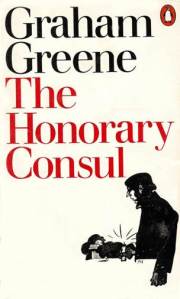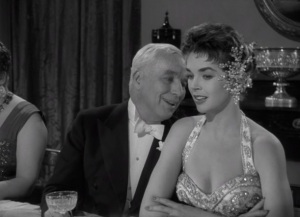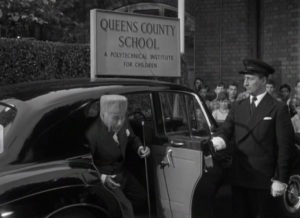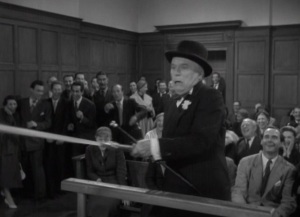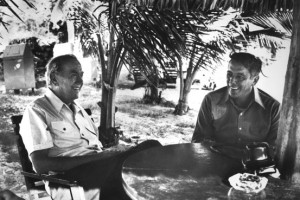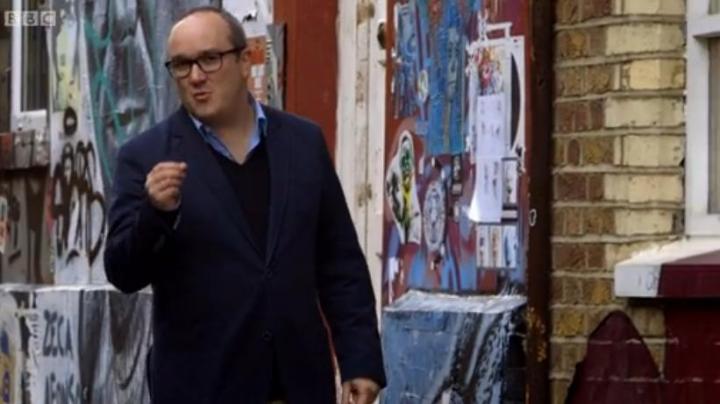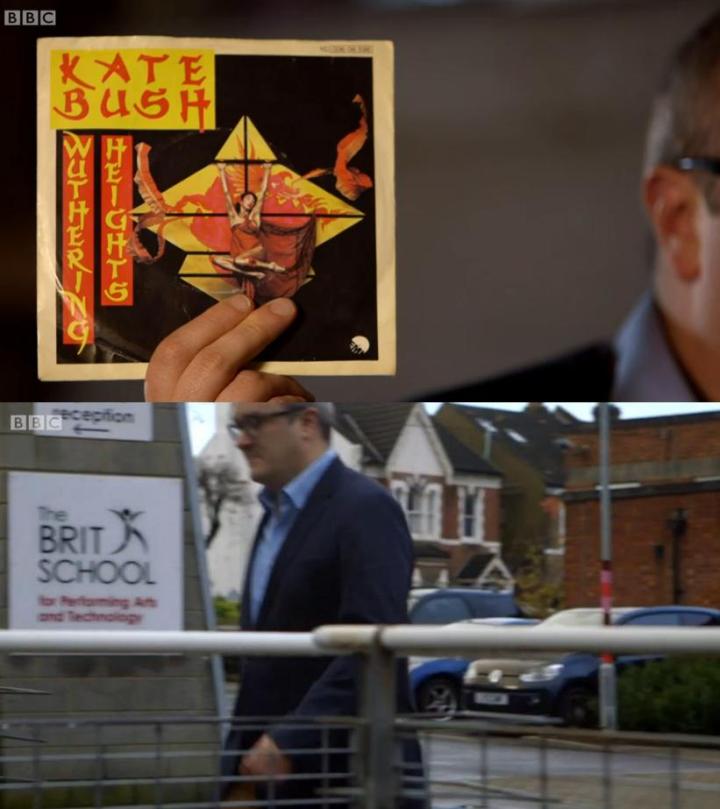In Graham Greene’s 1973 novel The Honorary Consul, Argentinian love-interest Clara knows ‘the latest dope about a woman called Elizabeth Taylor’, while the honorary consul Charley Fortnum shows his lack of popular cultural capital: ‘a fellow called Burton? I always thought Burton was a kind of beer.’[1] In addition, Clara is represented as vain and her attention is ‘bought’ by Dr Eduardo Plarr through a pair of sunglasses, an object signifying consumerist desires and also the act of watching. Popular writer Greene’s life and work has an ambivalent relation to popular culture, and his attitudes to the political Left were rarely fixed. One of the few common threads in his non-conformist life is a concern for the underdog.
Graham Greene was a ‘child of the cinema’: as a young man he had been a cineaste; from 1935-40, he reviewed hundreds of films, inspired by the serious film journal, Close Up, which he was reading in 1922 when he started at Oxford University.[2] His tastes were for the Grierson school of British documentary, European art cinema like Von Stroheim’s Greed (1924), Lang’s Die Nibelungen (1924) and the comedies of Chaplin, the Marx Brothers and Laurel and Hardy. These were examples of the relatively few films which lived up to his ideal of ‘poetic cinema’ that reflected life and had a visceral, popular appeal.
His views on British cinema were that it should depict the national character, as was observable in Will Hay films and the Grierson-style documentaries. This doesn’t necessarily clash with his status as a cosmopolitan internationalist. He tended to observe that British films were watered down by non-British influence and far less interesting or evocative of life than those which resisted this. Some of his pre-WW2 reviews seem like a cautious blueprint for Ealing’s Balcon-era output. As Matthew Sweet reminds us, Balcon’s Ealing was actually pretty left-wing – the sort of individual-respecting socialism that we can assign Orwell, Priestley and, indeed, Greene. Balcon was involved in the 1941 Committee who were lobbying for post-war opinion to be pro-Attlee instead of Churchill.[3] The Balcon children all speak of a home with a ‘political atmosphere’, infused by the ‘Left Book Club’. Sweet writes evocatively of Balcon’s protégé, Pen Tennyson, director of some earlier relatively class-conscious and politicised Ealing films: There Ain’t No Justice (1939) and The Proud Valley (1940). In his film reviewing days, Greene had seen potential in both films, but argued that it wasn’t realised; of the former, saying: ‘The etceteras – setting of bar rooms and coffee stalls – are admirable, but the whole picture breathes timidity and refinement.’[4] The latter he compared, unfavourably, with Carol Reed’s A.J. Cronin-adaptation The Stars Look Down (1940).[5] Cronin’s original novel had been loosely inspired by the March 1925 Montagu View Pit Disaster, in Scotswood, Newcastle upon Tyne.
Greene was regularly critical of and bemused by the British Board of Film Censors’ decisions: for example, to classify The Wizard of Oz (1939) as ‘for adults only’.[6] He argued, ‘Surely it is time that this absurd committee of elderly men and spinsters who feared, too, that Snow White was unsuitable for those under sixteen, was laughed out of existence?’[7] He felt it ridiculous that parents wouldn’t be able to take their children to see this ‘lavish’ film, which he liked in a pantomime vein, praising Margaret Hamilton’s performance as the ‘spinster-witch’. This shows a resistance to the wrong kind of paternalism: the BBFC’s stuffy partiality and bizarre prudery made them odd and damaging cultural gatekeepers.
In his critic days, Greene was often scornful of ‘middlebrow’ British films preferred by the BBFC that lacked intellect or excitement and chased a form of intangible sophistication or spurious cultural cachet. He also attacked much of Hollywood as summarised by the insipid nature of a Bing Crosby song number in a film with its ‘mild self-pity, something soothing, something gently amusing’, but not much of life.[8] As opposed to the lively vulgarity he liked in British audiences, he disliked the materialistic vulgarity of Hollywood, as shown in his 1937 piece ‘Film Lunch’ where he attacked moguls like MGM’s Louis B. Mayer and a system in thrall to money, with the content of films lacking in either intelligence or vivacity: ‘money for no thought, for the banal situation and the inhuman romance: money for forgetting how people live.’[9] He speaks of American capitalism utilising ‘a touch of religion, a touch of the family’ to gain respectability and cultural hegemony.[10]
He was sued in 1938 by 20th Century Fox for critiquing the ironically anti-religion and anti-family sexualisation of child-star Shirley Temple in the film Wee Willie Winkie. The magazine who published his review, Night and Day, had to pay the studio and Temple damages that came to a total of £3500. Nearly £216000 in today’s money! In another 1937 review, Greene condemned US cultural imperialism that he discerned within the ostensibly Germany-focused The Road Back, referring to ‘the unformed, unlined faces and the well-fed bodies of American youth, clean limbed, prize cattle mooing into the microphone […] It would be funny if it wasn’t horrifying. This is America seeing the world in its own image.’[11]
Fifteen years later, in 1952, when the House of Un-American Activities was in full swing, Greene wrote a letter to Charlie Chaplin that was published on 27th September in the New Statesman. He praises Chaplin as ‘a great liberal’, champion of the underdog whose films ‘have always punctured the bully’.[12] He suggests British personnel in Hollywood could boycott the films of those ‘friends of the witch-hunter’ Adolph Menjou and Louis B. Mayer. This letter even, as Neil Sinyard claims, partially inspired scenes in Chaplin’s anti-McCarthyist satire A King in New York from 1957. He suggests to Chaplin a scene where the tramp is resurrected and called before the House, which proposes an absurd range of indictments against supposedly politically-charged scenes from the tramp’s cinematic past. The letter shows a telling attempt by Greene to connect with the values he perceived in Chaplin’s cinematic work. Indeed, rare are the Greene texts which lack the underdog master-plot, as defined by H. Porter Abbot.
A clear example of this is Greene’s 1941 short-story ‘The Lieutenant Died Last’, which became the tremendous, ‘People’s War’ myth-building film, Went the Day Well? (dir. Alberto Cavalcanti, 1942). The short-story emphasises the working-class poacher, Purves, who is in the end imprisoned for his transgression of upper-class land, despite the ironic fact that this contravention enables him to pick off most of the German platoon threatening the village. Greene’s story focuses on this absurd, class-based injustice, while the film instead has the character die heroically, leaving a more or less united social tableau at the end. Greene represents ‘Old Purves’ as a plucky underdog, embittered due to his Boer war service, who succeeds due to his illicit knowledge of the Lord Drew’s land, but yet feels some revulsion at what he has done, when finding a baby-and-hearth photo on the person of the German lieutenant he had killed.[13] With Greene’s eye for the partiality and myth-making of official propaganda, he subtitles the story: ‘An Unrecorded Victory in 1940’.
In August 1956, US Democratic Presidential candidate and ‘egghead’ Adlai Stevenson had asked Greene to write a film script to support the United Nations. Greene drily declined, saying that the UN and ‘American materialism’ combined were the ‘chief threat’ to world peace.[14] Again, these are concerns which prefigure Chaplin’s A King in New York, which features a (sometimes overly verbose) series of verbal volleys against US culture, as Jim Jarmusch has identified. Chaplin critiques plastic surgery, product placement, advertisements and the sanitisation of popular music, in often very pungent visual terms – for example, the banal, crashing noise of the scene where his bonce is ‘drummed’ by a resident band’s drummer in a restaurant.
The attempt to make the child character (played by Chaplin’s son, Michael) the underdog doesn’t work like the universal Tramp, but very perceptive points indeed about monopoly and immigration are emitted from the precocious child’s gob. The sense of Chaplin as a champagne liberal or socialist is keenly felt – he plays a King, deposed via a communist revolution, but who finds US society no better. King Shadhoff has a Shavian or Wellsian belief in social progress, speaking not just against nuclear weapons but of a ‘Utopia’, which makes a mockery of Chaplin’s off-screen claims to be non-political: ‘I have never been political. I have no convictions. I am an individualist.’[15] Chaplin would have surely been quite well disposed towards Wells, who also had a turbulent London upbringing. Greene spoke in 1983 of admiring HGW’s work ‘enormously’ and preferring him to the more canonised Virginia Woolf and E.M. Forster.[16]
Individualism for Chaplin must be rather more about non-conformity than anything dangerously Ayn Rand or as ‘social mobility’ fixated as Michael Caine. This is shown in how the film encourages the audience to think and consider collective dreams like disarmament and devolved decision-making (with, admittedly, the paternalist King pointing the way).
If Chaplin can be likened to Bertrand Russell’s left-humanism, Greene might be usefully located in the context of the post-WW2 British cultural elite, with his brother Hugh Carleton Greene’s 1960-68 tenure of BBC Director General and the Wilson government influencing an incrementally more liberal cultural climate and laws. In a 1971 interview, Greene is very critical of the puritanical didacticism of the otherwise liberal Home Secretary Rab Butler’s Street Offences Act of 1960 – which he refers to as the ‘Cleaning the Streets Act’.[17] Contrastingly, Greene consistently adheres to a more ‘enlightened’, relaxed-about-vice well-healed paternalism. This is in the context of Leavisite ascendency in literature study, Hoggart’s The Uses of Literacy (1958) and seriously engaged documentaries in cinema and television from the likes of Denis Mitchell and John Krish. Politically, this aligned with Butskellism and the consensus politics deriving from the political economies of Beveridge and Titmuss; epitomised also by films such as A Diary for Timothy (1945), with its W.H. Auden script. Greene’s own focus on the ‘promise of socialism’ was first articulated in fiction via his 1934 novel, It’s a Battlefield.[18]
In 1993, Auberon Waugh referred to Greene as a ‘left-wing social democrat’, given to siding with the underdog and who had a ‘hatred’ of American culture for its ‘vulgarity and populism’.[19] There is a strong sense in which anti-Americanism runs through the middle and upper-class left in this era, seeing Hollywood and ‘mass culture’ as threatening to long-established ways of life – for example, Hoggart’s view on Leeds. However, Couto outlined what she saw as Greene’s nuanced attitude towards Americans in The Quiet American and The Comedians, arguing that Pyle and the Smiths represented the ‘courage and good intentions of individual Americans’, yet ‘also their misplaced, ill-judged and simplistic attitudes to life and the world.’[20] Couto discerns in the latter novel a critique of well-meaning charity, with aid money buttressing ‘imperialist activity’.[21] Ultimately, the benefit of the doubt never gets given to Americans in Greene’s work, though at least the Smiths are shown to be capable of learning and gaining more wisdom.
Perceptions of Greene’s hate-hate relationship with the US were strongly present in public discourse. Four days after Greene’s death, George Pitcher wrote a satirical piece for The Observer, wherein he has a ‘ghastly dream’ of the American secret-services responding to Greene’s persistent criticisms by blacklisting his works and which ends with Pitcher pointedly and sarcastically attacking on America’s ‘freedom, not money and business’ driven foreign policy.[22]
Greene also disliked the vast majority of the film adaptations of his work; with most American adaptations being, in his words from 1984: ‘outstandingly bad’.[23] He was particularly outraged by how Joseph L. Mankiewicz reversed the geopolitical argument of The Quiet American, making it into flag-waving, anti-Communist narrative; as Patterson argued, it might as well have been retitled ‘The Really Nice American’![24]
As well as Vietnam, many writers were radicalised by events in Chile, in the early 1970s; for example, Harold Pinter, whose turn to the left – a reverse-Kronstadt moment – was caused by the Pinochet coup d’état of 11 September 1973.[25] While writing THC, Greene wrote ‘Chile: The Dangerous Edge’ for the Observer Magazine, published on 2 January 1972, a ruefully pessimistic account of his travels around Chile and meetings with the increasingly besieged Salvador Allende. He sees Allende’s democratically-elected Popular Unity minority coalition government of six parties as an underdog ensemble, having to be wary of various threats: generals in Brazil and Bolivia and Robert Kendall Davis, American Ambassador to Santiago, who had links with the CIA in Guatemala; as well as the proud, moneyed miners of Chuqui and ex-President Frei ‘waiting in the wings.’[26]
Greene had been impressed by ‘the new class’ of Communist that he had met in Chile, who seemed to him very similar to those Czechs involved in the Prague Spring in being ‘open and experimental, with dogma as the ground of argument and not as an article of faith’.[27] In an October 1973 letter to Czech dissident writer Josef Skvorecky, he claimed that Allende was of the ‘school of Dubcek’ and expressed his horror at Pinochet’s putsch.[28] Andy Beckett has documented how Pinochet’s neo-liberal reforms – coupled with a repressive ‘authoritarian populist’ impulse, to use Stuart Hall’s terms – provided a template for Thatcherism in the UK.[29]
Greene moved left as he grew older, influenced by South American outlooks and his experiences visiting the continent, where liberals and social-democrats often worked with communists, uniting against the invariably US-backed domestic right-wing forces. He referred to American policy driving him ‘to be more friendly towards Communism’ than he would otherwise have been.[30] At the behest of the moderate General Torrijos of Panama, who became a personal friend, Greene was involved as a sort of maverick diplomat in many affairs in the region. For example, he attended the signing of a Panamanian treaty with the Carter-era USA, and, in 1979, he ‘helped to secure the release of British bankers kidnapped in El Salvador’.[31] His positive identification with Central and South American movements is also expressed in The Honorary Consul, as the reader is encouraged to like Leon Rivas, a former priest turned revolutionary who Greene loosely based on Father Camillo Torres, a priest who was shot along with guerrillas in Colombia.[32] Rivas quotes Che Guevara approvingly, to justify a pan-South American outlook.[33]
His support for countries faced by hostile US actions, like El Salvador and Nicaragua, became steadfast, and he refused to adopt a knee-jerk anti-communism: ‘constant economic and military aggression from the USA is the power that will drive these societies to hard-line Marxism’.[34]
In an April 1987 visit to Nicaragua, Greene acclaimed the Sandinistas as being on the frontline in a ‘war between civilisation and barbarism’, using language far more left-wing than he would have in 1950, when he visited Malaya, the one Cold War conflict zone where he found himself entirely aligned with conventional Western thinking.[35] Additionally, in a letter in early 1984 to his cousin Edward, he emphasised the Sandinista regime’s education programmes, which significantly reduced illiteracy and the productive nature of a government with Catholic priests and Jesuits working alongside Marxists like Tomas Borge.[36] For Greene, Margaret Thatcher’s giving Daniel Ortega of Nicaragua a frosty reception on his visit to the UK displayed a ‘complete ignorance of conditions in Nicaragua and Latin America.’[37] As with Chile, Greene saw Nicaragua as an underdog; Couto summarised his position: ‘every Government that seeks a degree of autonomy from American hegemony is branded a liability, its sovereignty given short shrift, its power destabilised’.[38] As Chris Mullin and Alan Plater showed with the novel and TV adaptation of A Very British Coup, a left-wing government in Britain would have faced much the same pressures. Harry Perkins is a left-wing underdog in the Greene mould, but with a Sheffield accent.
In the same year, Greene told Martin Amis: ‘I retain this sympathy for the dream of communism anyway, though I agree that the record is very discouraging.’[39] Indeed, in November 1967, before his protest efforts against the Vietnam War, Greene, along with Bertrand Russell and Herbert Read, was a signatory to the Belgian Defence of Human Rights’ letter to the Soviet Union protesting against the imprisonment of satirical writers Daniel and Sinyavsky.[40] Yet, he also told Amis: ‘I would rather end my days in the Gulag than in – than in California’, confirming comments he had originally made in the 1960s.[41] This clearly conveyed a clear preference, stopping short of support, for the Soviet side, representing a ‘lesser evil’-type judgement.
On 16th February 1987, impressed by Gorbachev’s leadership and feeling the Soviet Union was moving more towards his vision of it, Greene gave a speech to the Moscow Peace Forum, claiming Communists and Catholics were fighting together against the Death Squads in El Salvador, the Contras in Nicaragua and General Pinochet in Chile.[42] Greene often spoke of having no fixed attitude towards Communism, but it seemed, at that stage of Gorbachev’s liberalisation, as if ‘socialism with a human face’ could be realisable. It is only the sort of hindsight trafficked in by a Sandbrook or Gaddis that would claim there was an inevitability about Gorbachev’s ultimate failure to reform and transform communism.
Greene spoke of how he’d ‘rather romanticise the Left than romanticise the Right as Evelyn Waugh did’.[43] While he did show the limits of some left-wing organisations – such as the rebels in THC, who are shown to lack a seriously organised alliance with Catholicism – Greene in the détente and ‘second cold war’ eras showed his commitment to the struggles of the ‘new communism’ of Dubeck, Allende and the Sandinistas by including favourable representations of such ‘bottom-up’, underdog movements in his work.
[1] Greene, G. (1974) The Honorary Consul. London: Penguin, p.71
[2] Greene, G.; Parkinson, D. (ed.) (1995) Mornings in the Dark: The Graham Greene Film Reader. London: Penguin, p.xiii
[3] Sweet, M. (2006) Shepperton Babylon: The Lost Worlds of British Cinema. London: Faber and Faber, p.167
[4] Greene, G.; Parkinson, D. (ed.) (1995) ibid., p.323
[5] Greene, G.; Parkinson, D. (ed.) (1995) ibid., p.380
[6] Greene, G.; Parkinson, D. (ed.) (1995) ibid., p.371
[7] Greene, G.; Parkinson, D. (ed.) (1995) ibid., p.371
[8] Greene, G.; Parkinson, D. (ed.) (1995) ibid., p.414-6
[9] Greene, G.; Parkinson, D. (ed.) (1995) ibid., p.421
[10] Greene, G.; Parkinson, D. (ed.) (1995) ibid., p.420
[11] Greene, G.; Parkinson, D. (ed.) (1995) ibid., p.227
[12] Greene, G.; Parkinson, D. (ed.) (1995) ibid., p.436
[13] Greene, G. (2005) Complete Short Stories. London: Penguin, pp.472-3
[14] Greene, G.; Greene, R. (ed.) (2008) A Life in Letters. London: Abacus, p.221
[15] Chaplin Today (Jerome de Missolz & Jim Jarmusch, 2003) – DVD: A King in New York
[16] Cunningham, J. (1983) ‘Plain thoughts of an Englishman abroad’, The Guardian, 19th December, p.11
[17] Hamilton, A. (1971) ‘GRAHAM GREENE’, The Guardian, 11th September, p.8
[18] Couto, M. (1988) On the Frontier: Politics and Religion in the novels of Graham Greene. London: Macmillan Press, p.167
[19] Arena: The Graham Green Trilogy 2: ‘The Dangerous Edge’, BBC, TX: 9th January 1993
[20] Couto, M. (1988) ibid., p.178
[21] Couto, M. (1988) ibid., p.178
[22] Pitcher, G. (1991) Bottom Line: ‘Greene fingered’, The Observer, 7th April, p.30
[23] Arena: ‘They Shot Graham Greene at the NFT’, BBC-4, TX: 3rd October 2004
[24] Patterson, J. (1999) ‘Playing the Greene card’, The Guardian, 10th December, p.B27
[25] Couto, M. (1988) ibid., p.160
[26] Greene, G. (1990) Reflections. London: Reinhardt Press, p.283
[27] Greene, G. (1990) ibid., p.281
[28] Greene, G.; Greene, R. (ed.) (2008) ibid., p.328
[29] Beckett, A. (2003) Pinochet in Piccadilly: Britain and Chile’s Hidden History. London: Faber and Faber
[30] Couto, M. (1988) ibid., p.209
[31] Evans, R. & Hencke, D. (2002) ‘In life as in fiction, Greene’s taunts left Americans in a quiet fury’, The Guardian, 2nd December, p.3
[32] Couto, M. (1988) ibid., p.160
[33] Greene, G. (1974) ibid., p.104
[34] Couto, M. (1988) ibid., p.160
[35] Arena: The Graham Green Trilogy 3: ‘A World of My Own’, BBC-2, TX: 10th January 1993
[36] Greene, G.; Greene R. (ed.) (2008) ibid., p.382
[37] Evans, R. & Hencke, D. (2002) ibid., p.3
[38] Couto, M. (1988) ibid., p.167
[39] Amis, M. (1984) ibid., p.7
[40] The Guardian (1967) ‘Plea to free writers’, The Guardian, 28th November, p.17
[41] Amis, M. (1984) ibid., p.7
[42] Greene, G. (1990) ibid., pp.316-7
[43] Couto, M. (1988) ibid., p.212
